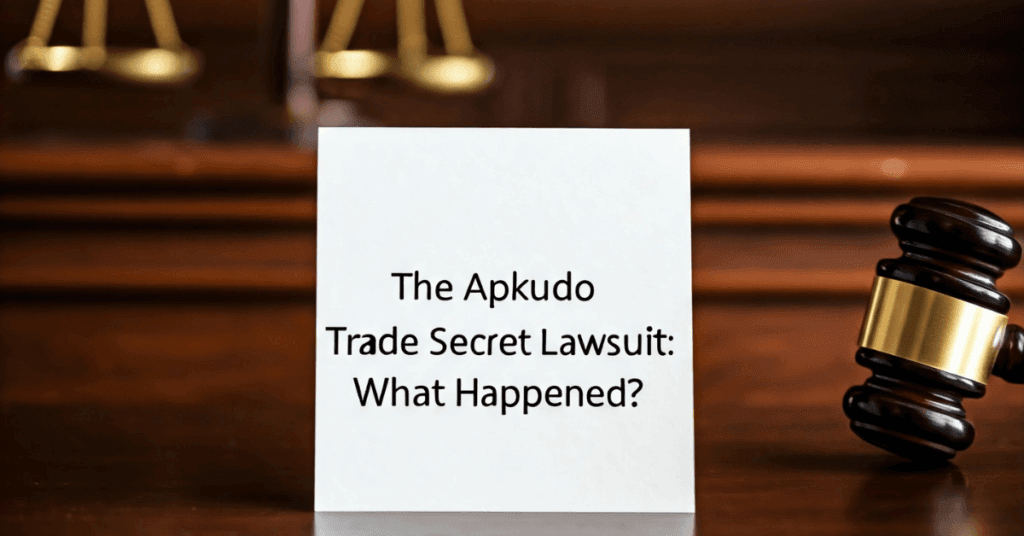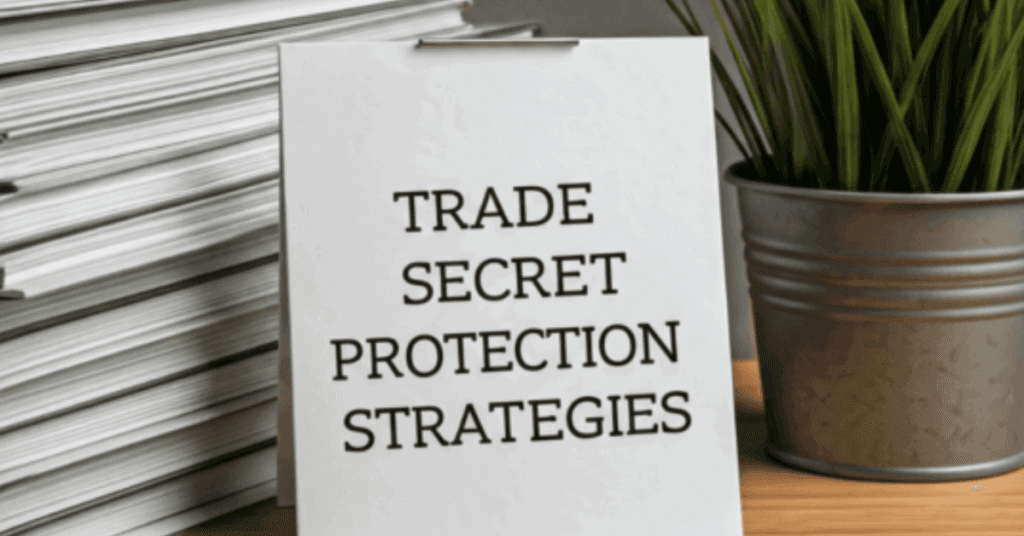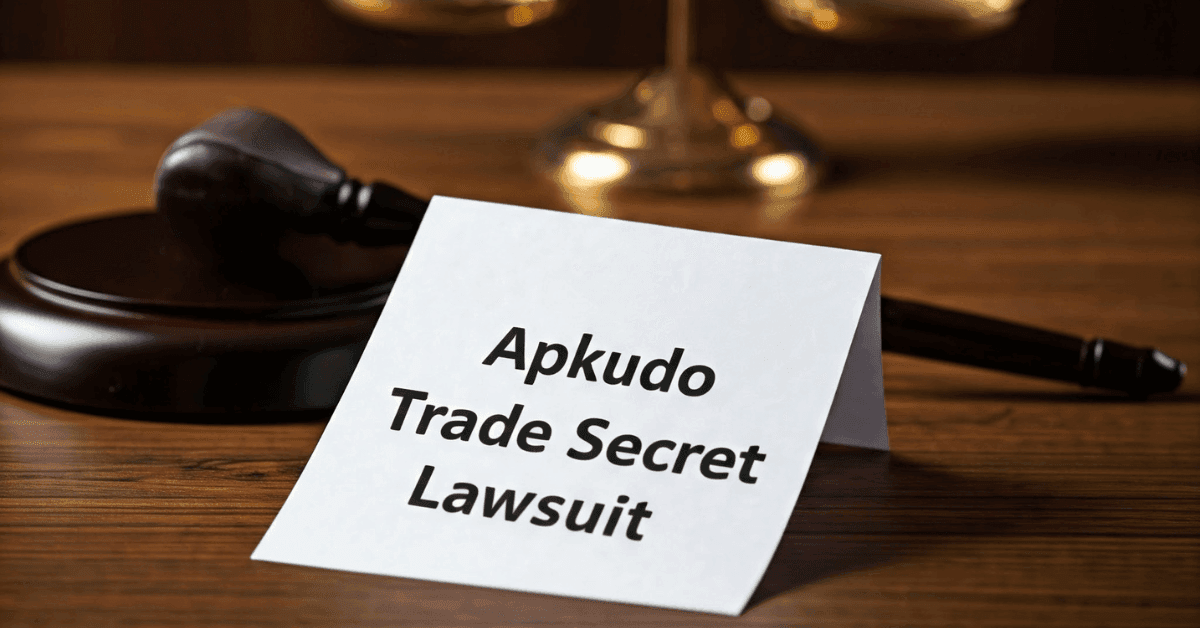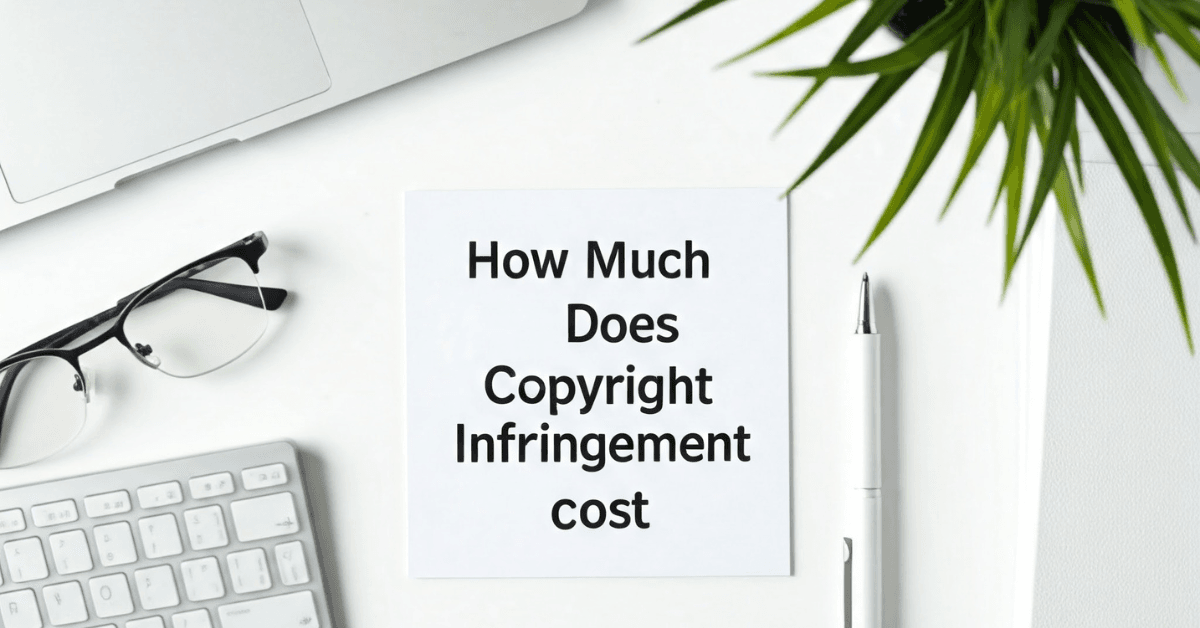Table of Contents
Do you know what makes a company unique and successful? It’s often their trade secrets. These are special ideas, formulas, or techniques that give a business its edge. But what happens when these secrets aren’t protected? The Apkudo trade secret lawsuit is a recent example of what can go wrong when confidential information isn’t safeguarded properly.
Let’s jump into this story and learn how you can protect your own trade secrets. By the end, you’ll know the best strategies and real-life examples to keep your business safe.
What is a Trade Secret?
A trade secret is any valuable information that gives a business a competitive edge and isn’t publicly known. Unlike patents, which are disclosed to the public, trade secrets must remain confidential to retain their value.
Examples of trade secrets include:
- The recipe for Coca-Cola
- Google’s search algorithm
- A secret manufacturing process
- Customer lists and pricing strategies
Essential Criteria for Trade Secret Protection

But not every piece of information qualifies as a trade secret. For information to be protected as a trade secret, it must meet the following criteria:
- Secrecy: The information must not be generally known or easily accessible.
- Economic Value: The information should provide a competitive advantage.
- Reasonable Efforts to Protect: The owner must take active steps to keep the information confidential, such as using NDAs and restricting access.
Does a Trade Secret Need to Be Registered for Protection?
Unlike patents or trademarks, trade secrets do not need to be registered with any government body. Their protection doesn’t depend on official documentation but rather on the efforts of the business to keep the information secret.
Here’s how trade secrets work:
- Self-Regulated: The onus is on the business to ensure the information is protected. This can be done through NDAs, limited access, and secure storage.
- No Expiry: As long as the information remains confidential and valuable, it continues to qualify as a trade secret.
- Legal Protections: If someone misuses or steals a trade secret, laws like the Defend Trade Secrets Act (DTSA) in the U.S. offer remedies, such as injunctions and damages.
For example, if a bakery has a secret recipe for its best-selling cake, it doesn’t need to register it. Instead, the bakery can limit access to the recipe and use contracts to ensure employees and partners don’t disclose it.
The Apkudo Trade Secret Lawsuit: What Happened?

In 2024, Apkudo, a company specializing in device lifecycle solutions, was accused by Basatne International LLC of misusing trade secrets. Basatne claimed that Apkudo used confidential information about device lifecycle management practices unfairly. This information was supposed to be kept secret.
The court didn’t proceed with a public trial. Instead, it sent the case to arbitration. This decision highlights how trade secret disputes are often handled privately to protect sensitive details.
So, what can we learn from Apkudo Trade Secret Lawsuit? If you don’t have the right safeguards, you risk losing your competitive advantage. And once a trade secret is out, you can’t put the genie back in the bottle.
Why Are Trade Secrets Important?
Think about the recipe for Coca-Cola. It’s a trade secret that’s been protected for over 130 years. Trade secrets help businesses stay ahead of their competitors. If someone leaks or steals them, it can cause huge financial losses.
But here’s the thing: trade secrets are only valuable if you keep them secret. Without proper protection, even the best ideas can be stolen. That’s why companies need strong strategies to keep their secrets safe.
Lessons from the Apkudo Trade Secret Lawsuit
1. Have Clear Agreements
Apkudo’s trdae secret lawsuit shows how important contracts are. Always use Non-Disclosure Agreements (NDAs) and confidentiality clauses. These documents spell out what’s secret and what happens if someone breaks the rules.
2. Be Careful with Partners
Trust is good, but verification is better. When working with other businesses, ensure they’re reliable and won’t misuse your secrets.
Strategies to Protect Trade Secrets

1. Use NDAs and Confidentiality Clauses
What’s the easiest way to protect your secrets? Write them into a contract. An Non-Disclosure Agreement (NDA) or confidential agreement is like a promise: the other party agrees not to share or use your information without permission.
2. Control Who Sees the Information
Do all your employees need to know everything? Probably not. Only share secrets with people who really need them. For example, if you’re running a bakery, only the head baker might need access to your secret recipes.
3. Keep Digital Data Secure
Most trade secrets are stored digitally today. Use strong passwords, encryption, and firewalls to protect your files. Think of it as locking your valuables in a digital safe.
4. Train Your Team
Do your employees know how to handle confidential information? Regular training can help them understand the importance of keeping secrets safe. This also reduces accidental leaks.
5. Monitor and Audit Regularly
It’s easy to trust people, but it’s smarter to verify. Use tools to track who accesses sensitive files and how they’re used. Regular audits can help you spot problems early.
6. Vet Your Partners
Before working with another company, check their reputation. Do they have a history of respecting confidentiality? If not, think twice.
7. Foster a Culture of Confidentiality
Make trade secret protection part of your company’s values. Reward employees who follow best practices and report potential issues.
8. Be Ready for Legal Action
Sometimes, even the best plans fail. If someone steals your secrets, be ready to take legal action. Keep detailed records to prove ownership of your trade secrets.
Other Landmark Cases
The Apkudotrade secret lawsuit isn’t the only case involving trade secrets. Let’s look at a few more famous examples:
E. I. du Pont de Nemours & Co. v. Christopher (1970):
This case dealt with industrial espionage. In this case Christophers (defendants) were hired to take aerial photographs of DuPont’s(plaintiff) methanol plant under construction in Texas, revealing trade secrets. DuPont successfully sued for misappropriation of trade secrets.
Kewanee Oil Co. v. Bicron Corp. (1974):
In this landmark case, the U.S. Supreme Court upheld the protection of trade secrets under state law. It stated that such laws do not conflict with federal patent laws. The Court emphasized that trade secret protection encourages innovation and safeguards confidential business information without hindering public access to valuable inventions.
These cases show that protecting trade secrets isn’t just about good business sense—it’s about legal preparedness and ethical responsibility.
Defend Trade Secrets Act (DTSA) of 2016
The Defend Trade Secrets Act (DTSA) of 2016 is a U.S. law that helps protect business secrets. It includes important features like allowing officials to take action quickly if someone is stealing secrets. It also protects workers who report illegal activities within their company. This law makes it easier for businesses to protect their valuable confidential information and take legal action if someone tries to steal it.
FAQs on Trade Secret Protection
A trade secret is any information that gives a business a competitive edge and isn’t known to the public. Examples include recipes, algorithms, and customer lists.
Small businesses can use NDAs, limit access to sensitive information, and invest in basic cybersecurity tools.
You can take legal action to stop the leak and seek damages. However, once the information is public, it’s no longer a trade secret.
Arbitration is often faster, cheaper, and more private. This can be a big advantage in sensitive cases.
Yes, trade secrets can last indefinitely as long as they remain confidential. Unlike patents, there’s no expiration date for trade secrets.
Keep detailed records, including development timelines, employee agreements, and access logs. This documentation can help establish ownership in legal disputes.
Conclusion
Trade secrets are the lifeblood of many businesses. The Apkudo trade secret lawsuit teaches us that protecting confidential information is not optional—it’s essential. By using the strategies we discussed, you can keep your secrets safe and your business thriving in the business market.
Remember, a secret is only a secret if you protect it. Are you doing enough to safeguard yours?




